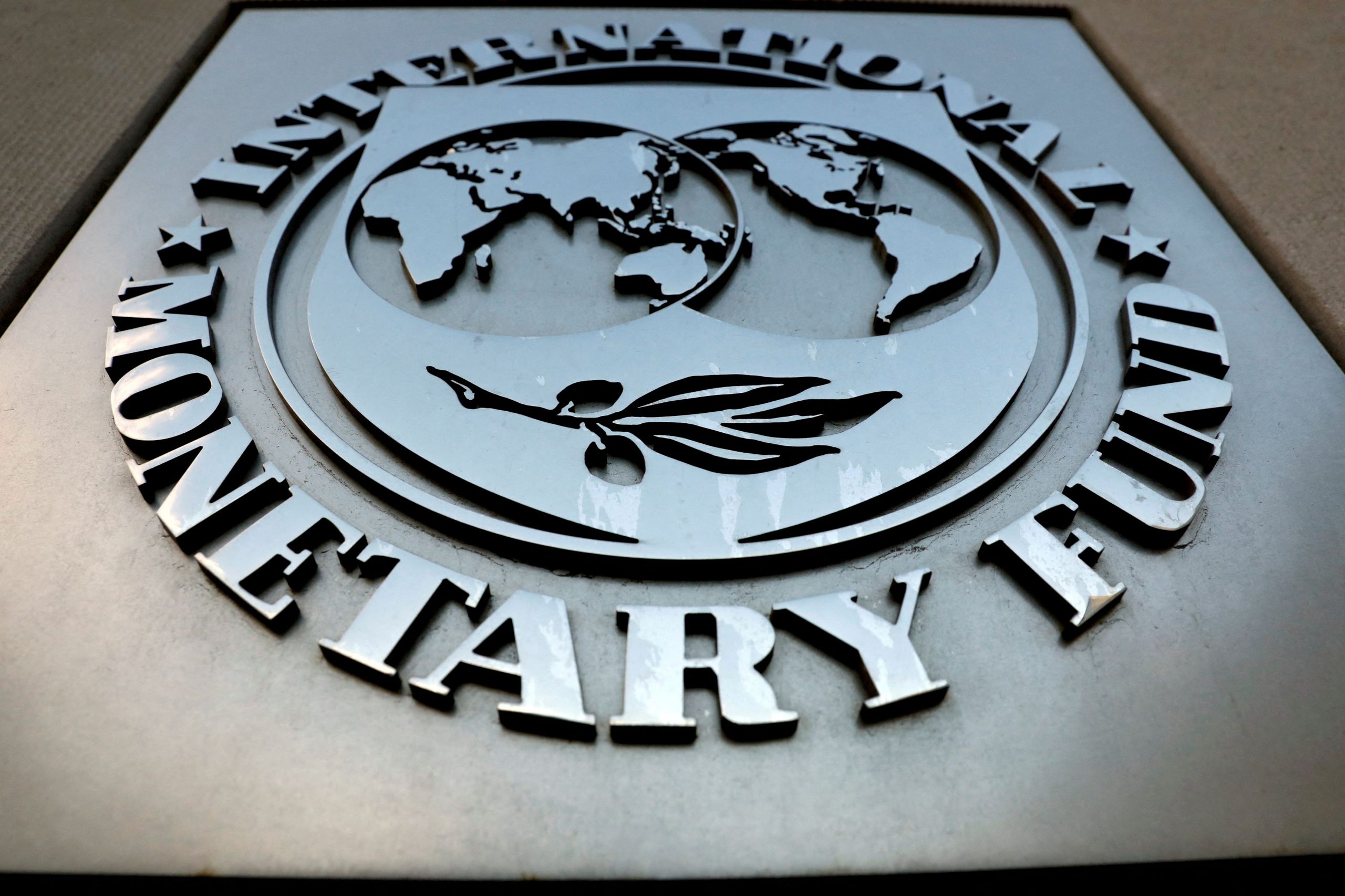
“The right mix of policies” in three main pillars was recommended by the head of the IMF mission for Greece, Gong Shik Kang, speaking online to journalists on the occasion of the completion of the IMF mission in Greece.
The IMF sees government wages and pensions as high, suggests 2% surpluses, sees inflationary risks, as well as possible risks due to interest rates.
Greek economy: Fitch and the Commission’s report will judge support measures
The IMF sees inflationary risks in the event of an escalation of the war in Ukraine and the conflict in the Middle East, as energy and food prices may rise, but in the event of shocks due to extreme weather events
“Greece’s economic prospects have improved significantly. We expect that the economy will continue to grow robustly this year and next year by 2.5% and 2% respectively” said G.S. Kang at the beginning of the online press conference.
However, as stated in the IMF statement, the economy faces macroeconomic challenges amid significant monetary policy tightening, persistent structural inflation and rising property prices, while structural imbalances resulting from low household savings, the still low level of investment and climate changes affect medium-term growth prospects.
Predictions
As pointed out, due to the negative demographic outlook, the expiry of the Next Generation EU (NGEU) in 2026 and low potential growth, growth will moderate to 1.25% in the medium term, while inflation will remain high and is expected to decrease to 2% at the end of 2025 as structural inflationary pressures will gradually ease despite continued normalization in food and energy prices.
The IMF sees inflationary risks in the event of an escalation of the war in Ukraine and the conflict in the Middle East, as energy and food prices may rise, but in the event of a shock due to extreme weather events.
Regarding public finances, G.S. Kang noted that “public debt to GDP has fallen below the pre-pandemic level, and debt financing risks are limited in the medium term due to the favorable debt structure.”
But he recommended “continued fiscal consolidation with the primary surplus rising to 2.1% of GDP in 2024 and maintained at around 2% of GDP in the medium term to strike a good balance between ensuring public debt sustainability and promoting more sustainable, greener and inclusive growth”. He even emphasized that in view of the end of the debt grace period (in 2032) it is important to maintain primary surpluses at 2% of GDP.
The IMF also recommends restraint on spending, especially on public sector wages and pensions, which it says “remain at high levels compared to other countries.”
However, the IMF encourages maintaining or even increasing spending on targeted social transfers, health and education.
Banking System
Regarding the financial system, G.S. Kang said it “remained resilient with improving bank balance sheets.
Asset quality has improved with continued decline in non-performing loan ratios, there is ample liquidity in the banking system and bank capital has been strengthened with increased bank profits.”
But he advised that “as we are in a prolonged higher interest rate environment, any potential risks related to interest rates, liquidity and credit exposures should continue to be closely monitored.
At the same time, we see the need to strengthen macroprudential supervision tools and their active use to ensure financial stability against emerging risks.”
In fact, he specifically referred to recommendations to the Bank of Greece.
“We recommend that the Bank of Greece activate a positive neutral countercyclical buffer and introduce measures based on mortgage borrowers, such as loan-to-value ceilings and debt-service-to-income ceilings to strengthen the resilience of households and to limit the vulnerabilities of the banking system against emerging risks in the future”.
As mentioned in the conclusions of the IMF, the replacement of the targeted longer-term refinancing operations – TLTROs with more expensive financing from the market can create challenges.
He recommended proactive credit risk management to ensure that banks maintain comfortable capital buffers, even suggesting that temporarily increased profits be used to create buffers.
It also recommended continued reforms, emphasizing further streamlining of regulations to facilitate business entry and exit, greater labor force participation by youth, women and the elderly, and strengthening reforms of the judicial system and out-of-court procedures.
Latest News

Airbnb Greece – Initial CoS Ruling Deems Tax Circular Unlawful
The case reached the Council of State following annulment applications filed by the Panhellenic Federation of Property Owners (POMIDA)

Mitsotakis Unveils €1 Billion Plan for Housing, Pensioners, Public investments
Greek Prime Minister Kyriakos Mitsotakis has announced a new set of economic support measures, worth 1 billion euros, aiming to provide financial relief to citizens.

Alter Ego Ventures Invests in Pioneering Gaming Company ‘Couch Heroes’
Alter Ego Ventures' participation in the share capital of Couch Heroes marks yet another investment by the Alter Ego Media Group in innovative companies with a focus on technology.

Corruption Still Plagues Greece’s Driving Tests
While traffic accidents continue to claim lives on Greek roads daily, irregularities and under-the-table dealings in the training and testing of new drivers remain disturbingly widespread

Pope Francis Died of Stroke and Heart Failure Vatican Confirms
As news of the official cause of death spread, tributes poured in from across the globe. The 1.4 billion-member Catholic Church is united in grief, remembering a pope who championed inclusion, justice, and compassion

Increase in Both Museum Visits, Revenues for 2024
As expected, the Acropolis was the top archeological site in the country, followed by Sounion, Mycenae, the ancient theater of Epidaurus, and Vergina in northern Greece

Where Greece’s Tourists Come From: A Look at 2025’s Top Visitor Markets
The United Kingdom continues to hold the top spot as the largest source of incoming tourism, with 5.6 million seats booked for Greece this summer — up 2.2% from last year. This accounts for 20% of all international air traffic to Greece

Pope Francis: A Pontiff Who Reshaped the Papacy and Sparked a Global Conversation
His first words from the balcony of St. Peter’s Basilica—“Brothers and sisters, good evening”—set the tone for a pontificate that would challenge norms, favor mercy over dogma, and bring the papacy closer to the people.

When Blue Skies was Unmasked as ND’s Political ‘Slush Fund’
The fact that so many top New Democracy (ND) party cadres were paid by the firm Blue Skies, owned by Thomas Varvitsiotis and Yiannis Olympios, without ever citing this publicly, raises very serious moral issues, regardless of the legality

Greek Women’s Water Polo Team Top in the World after 13-9 Win Over Hungary
The Greek team had previously defeated another tournament favorite, the Netherlands, to reach the final.











![Πλημμύρες: Σημειώθηκαν σε επίπεδα ρεκόρ στην Ευρώπη το 2024 [γράφημα]](https://www.ot.gr/wp-content/uploads/2025/04/FLOOD_HUNGRY-90x90.jpg)




![Ξενοδοχεία: Μεγάλο το ενδιαφέρον για επενδύσεις στην Ελλάδα – Η θέση της Αθήνας [γραφήματα]](https://www.ot.gr/wp-content/uploads/2025/03/Athens-hotels-90x90.jpg)
























 Αριθμός Πιστοποίησης
Αριθμός Πιστοποίησης